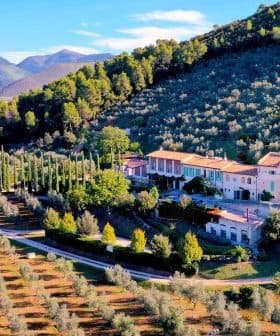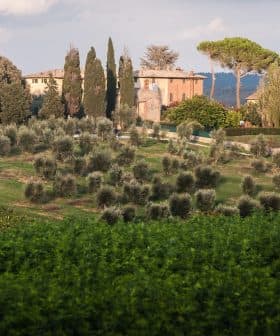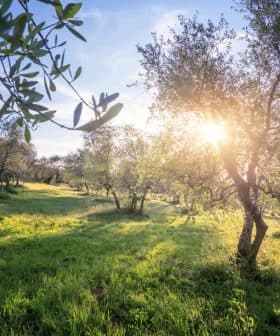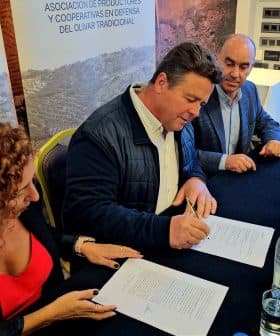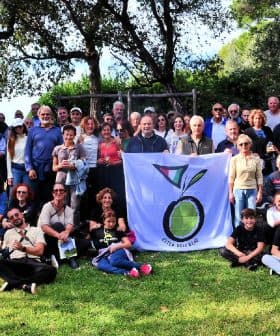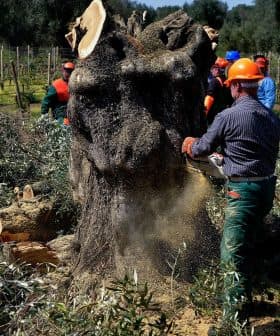Olive Oil Production Returns to Pompeii 2,000 Years After Volcanic Eruption
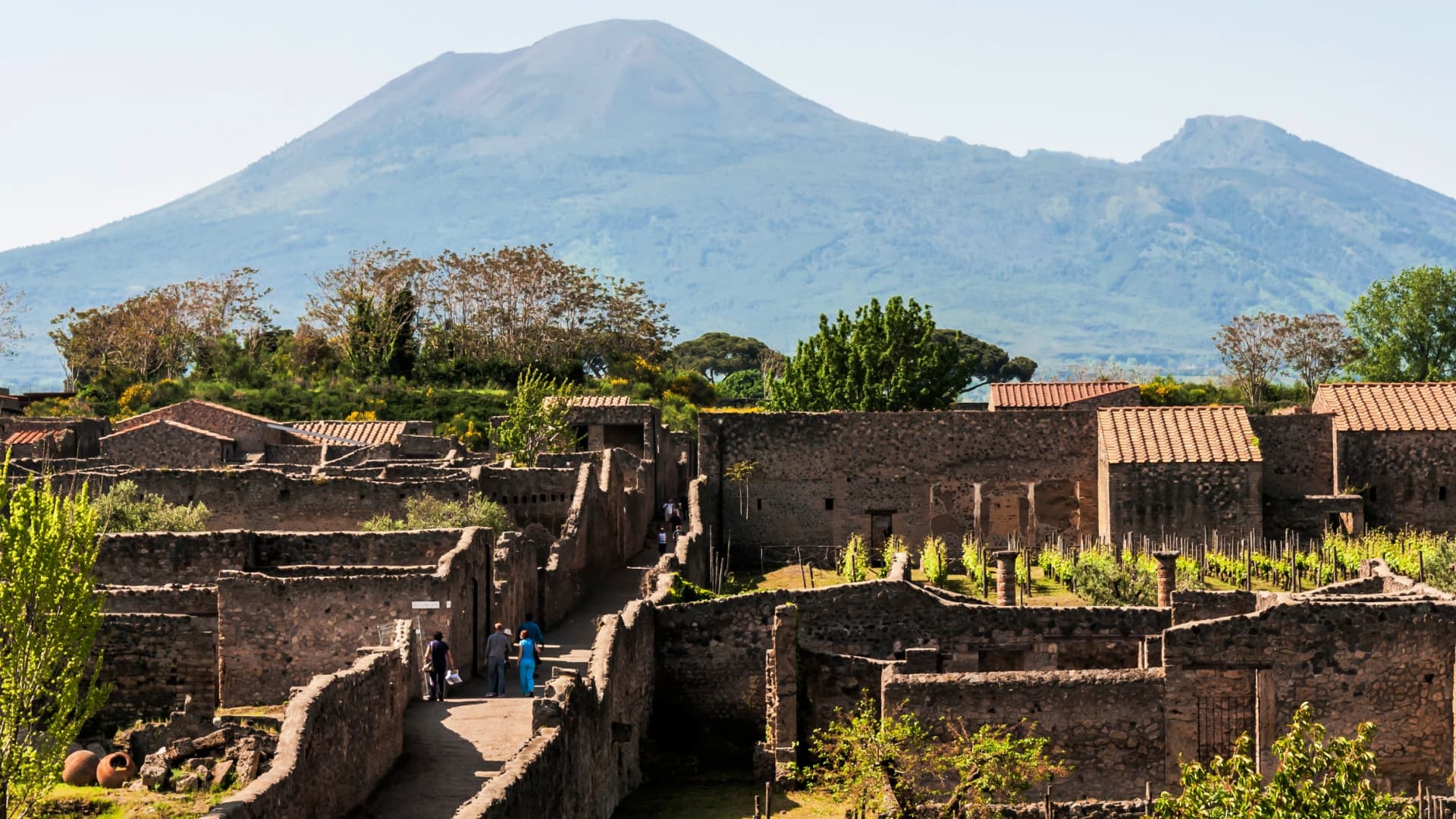
The first olive oil produced in ancient Pompeii since its destruction in 79 C.E. was celebrated during a ceremony attended by farming organizations, olive growers, and government ministers, with the oil named Pumpaiia and made from restored olive trees across the city. The recovery of the olive trees in Pompeii is part of a broader effort to restore ancient olive heritage in Italy, with similar initiatives in other archeological parks, and the celebration coincides with the Italian government’s push to promote its cuisine for selection for UNESCO’s Intangible Cultural Heritage List.
Three hundred fifty olive trees dotting the archeological area of Pompeii, in southern Italy, are the source of the first olive oil produced in the ancient city since the disastrous volcanic eruption entombed it in 79 C.E.
During a ceremony held on the porch of the Large Palaestra, a suggestive location in the heart of the archaeological site, farming organizations, olive growers and government ministers tasted and celebrated the Pumpaiia extra virgin olive oil, named after the city.
“This extra virgin olive oil is the fruit of a collaborative effort of our associations and the Archeological Park of Pompeii institutions,” Nicola Di Noia, the director general of the olive oil producer association, Unaprol, and president of the agricultural support services of the farming organization, Coldiretti, told Olive Oil Times. “Across the city, hundreds of olive trees have been restored.”
See Also:Art Exhibition Reflects on Xylella’s Devastating ImpactThe olive trees grow across 66 hectares in the historic Roman city, populating the courtyards of Pompeii’s ancient houses and some green spaces.
“That is one of the challenges. To harvest the olives and take care of the trees, growers need to spread around such a large surface,” Di Noia said.
Upon recovery, the olive trees were pruned according to their location, with an eye on both production and landscape needs.
“Besides the olive trees, a number of local plant species used to grow in Pompeii. They have all been recovered as part of the restoration project,” Di Noia noted.
Pompeii’s olive trees include popular Italian cultivars such as Moraiolo and Leccino, but many come from local cultivars, which are far less known.
“There are olive trees strictly linked to the region, such as Ravece, Ortice or Carpellese,” Di Noia said. “The Pompeii Archeological Park has always been active in researching ancient species with the goal to recover not only its trees but to revive the unique link [of modern Pompeii] to its history.”
“There are Domus, the courtyards of which have been restored, where plants from those ancient times now thrive again,” he added.
The local farmers and associations are responsible for pruning the trees and attending to their needs throughout the season, harvesting and transforming the olives.
“All of the olive oil produced by those olives becomes Pompeii’s unique extra virgin olive oil and is returned to the Archeological Park,” Di Noia said. “This initiative is not business-oriented. Its meaning lies in promoting the historical connection with Pompeii’s origins.”
Ancient Pompeiians consumed plenty of olive oil, which was only partially produced by local growers. Most of the olive oil was imported from regions across the Roman Empire.
“They used it for many purposes, not only for consumption but also for cleansing or cosmetics, typical of those ancient days. Think of the use of olive oil as fuel. Olive oil lamps once lit the whole of Pompeii,” Di Noia said.
The recovery of the olive trees comes on the heels of similar initiatives to restore the ancient olive heritage of other archeological parks in the country.
Among the examples of recovery projects are Palatine’s olive oil produced from the trees in the Colosseum Park in Rome or olive oil produced from thousands of trees planted at the villa of the Roman emperor Hadrian, not far from the Italian capital.
“Those are examples of recovery which we hope may also inspire other initiatives to combat the abandonment of olive orchards throughout the country, such as the initiative in the Apennines,” Di Noia said.
Table olives were also presented to the Italian ministers on the porch of the Large Palaestra.
“Pompeii’s residents avidly consumed table olives,” Di Noia said. “There are archeological inscriptions that detail the use of table olives. Receipts to produce them were found.”
“At the time, they produced table olives only by natural methods, of course,” he added. “Even if they were not grown in Pompeii, the table olives we presented at the event are the fruit of that same ancient approach. Instead, they are bitter natural table olives, full of antioxidants.”
The celebration in Pompeii comes ad the Italian government seeks to promote its cuisine as a candidate for selection for UNESCO’s Intangible Cultural Heritage List.
“The food and wine production chain is part of the Italian heritage,” Gennaro Sangiuliano, minister of Culture, said during the event. “Culture and food tradition is an opportunity for socio-economic development.”



